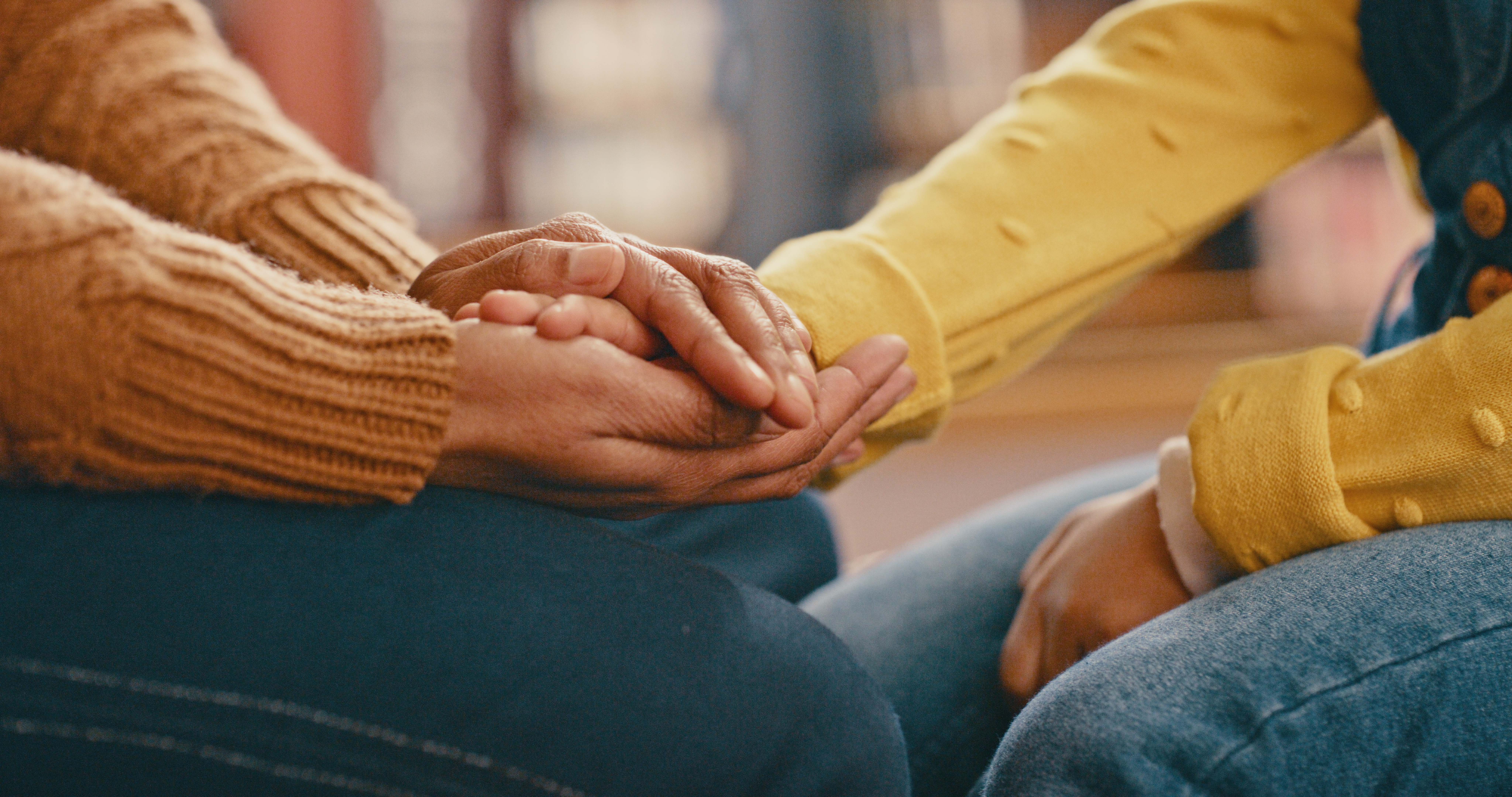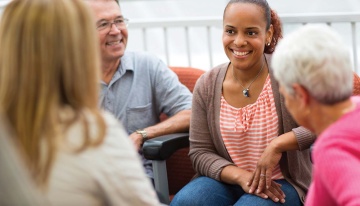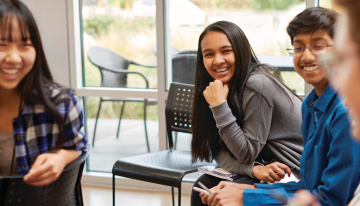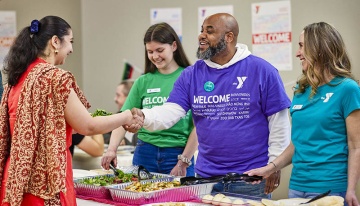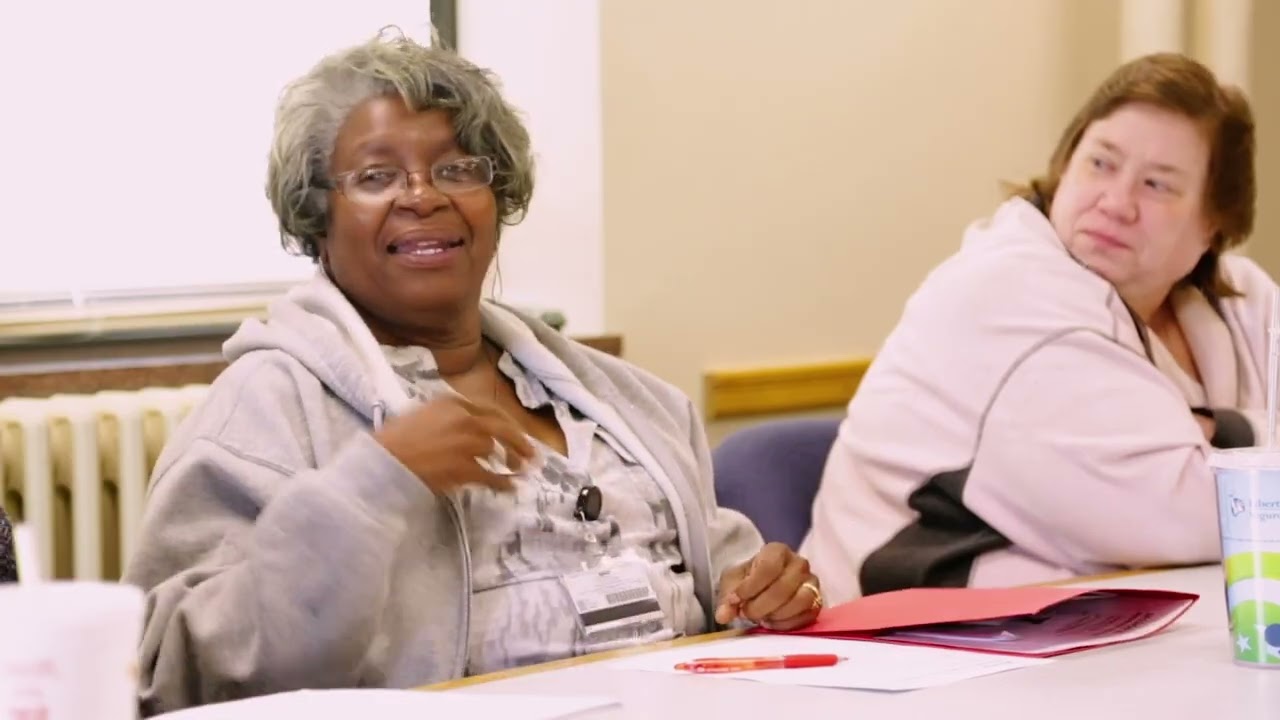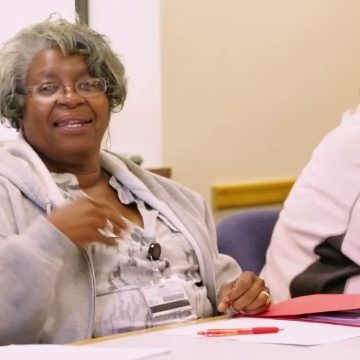For too long and for too many, mental health has been equated with mental illness, which relegated any talk of it to clinical settings. In reality, though, we all have a role to play in supporting the mental well-being of those around us.
A Community-Based Model of Care
The Y is uniquely positioned to support the mental health of individuals and communities in all the work we do to help people reach their full potential—whether it’s teaching life skills to youth in our summer camps, supporting our staff, or helping people achieve their best physical health.
The Y is empowering individuals and communities to provide informal, community-based mental health support, promote mental well-being, and reduce the risk and impact of mental illness. Through intentional efforts to increase awareness and competence in key knowledge, skills and behaviors, Ys are working to build their capacity to provide mental health community care.
Mental health community based support at the Y includes:

- Understanding mental health as something we all have—it is how we think, feel, and act.
- Applying positive self-care practices routinely.
- Engaging in conversations in a genuine way, with empathy and the intent of building meaningful relationships.
- Understanding and applying trauma-informed guiding principles when interacting with others.
- Understanding the impact of social determinants of health, discrimination and marginalization on mental health.
- Modeling emotion regulation, co-regulation, and effective coping skills.
- Recognizing signs that someone may be struggling.
- Connecting individuals to primary and specialty support when needed.
- Providing initial response in crisis situations.
- Initiating dialogue and collaborating with others to embed mental health informal care support throughout the community.
Through this work, the Y hopes to provide individuals and organizations with the knowledge, skills and behaviors to care for themselves and others. By enacting mental health community care and partnering with more clinical supports, we can create an environment where everyone has access to the support they need in the places where they live, work, play and thrive.
Informal support is not therapy, nor does it replace formal support (i.e., diagnosis, prescription, and treatment). Informal support complements formal support by reinforcing healthy behaviors, increasing protective factors and building resilience. If you or someone you know is struggling or in crisis, help is available. Call or text 988.
Supporting the Mental Health of Children and Youth
More and more, youth are experiencing poor mental health that present challenges to their development and their ability to pursue their goals. Research shows more than 4 in 10 high school students feel persistently sad or hopeless, nearly 3 in 10 experienced poor mental health, and 1 in 10 have seriously contemplated suicide.
At the Y, we strive to empower young people to reach their full potential, and through our youth-serving programs, we are well-positioned to help youth increase healthy behaviors, protective factors, and resilience through opportunities for recreation, socialization, and skill development.
 Young People Are Talking About Mental Health. We Should Listen.
Young People Are Talking About Mental Health. We Should Listen.
In her blog, Suzanne McCormick, president and CEO of YMCA of the USA, shares insights from a virtual panel with five young adults who shared their experiences navigating mental health. Co-hosted by the Y with our partner The Joy Labs, they covered everything from strategies they lean on when they’re feeling down to how they’d like to see schools and organizations show up in the mental health space. Read Suzanne’s blog post and watch the panel.
Getting Help
If you or someone you know is struggling or in crisis, help is available. Call or text 988 or chat 988lifeline.org to reach the 988 Suicide & Crisis Lifeline.
Learn How You Can Make a Difference
- Intentionally asking “how are you?” and encouraging honest answers so others can share and feel heard.
- Bringing empathy, compassion and kindness to your daily interactions.
- Use your powers of observation to notice when someone may be struggling with a hard day, moment or situation.
- When you notice someone struggling, connecting them to mental health resources.
- Want to do more? Join the YMCA Advocates Action Network and use your voice to help advance legislation on the local, state and federal level that promotes mental health and wellness.
Are you a local Y looking for mental health and community care resources for your staff and members? Visit the Mental Health community page on Link for more information (YMCA login required).
